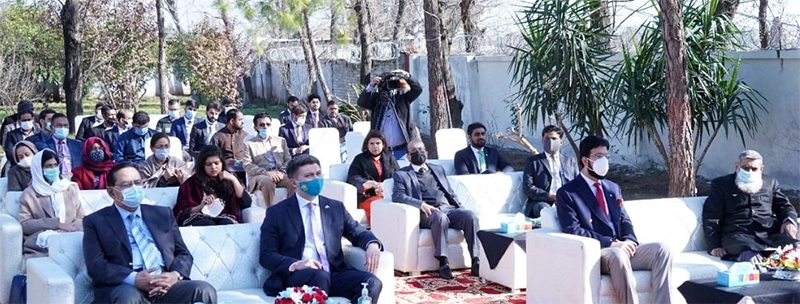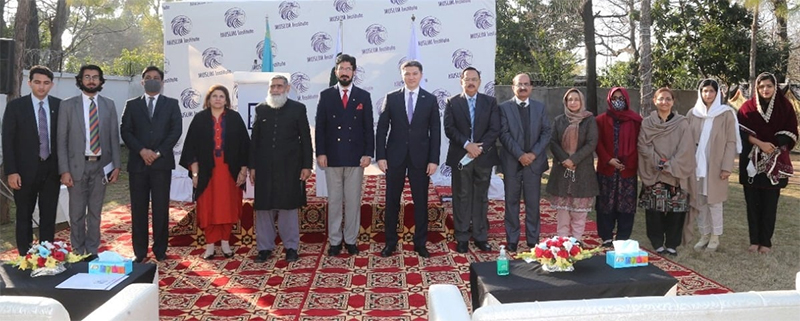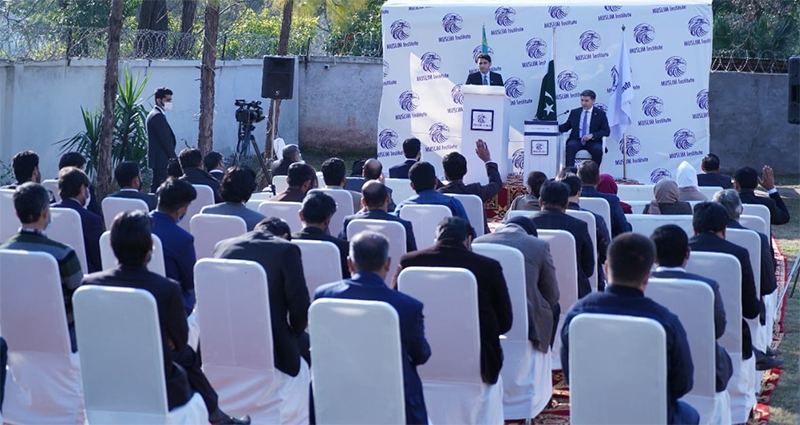| |
|
|
Another option could be the potential links between Islamabad and Astana through the connection of railways such as Kazakhstan-Turkmenistan-Iran and Pakistan-Iran-Turkey. Kazakhstan’s new economic policy ‘Nurly Zhol’ to develop and modernize roads, railways and ports converge Pakistan’s policies under CPEC such as the up-gradation and dualization of ML-1. The Pakistan-Iran-Turkey railway route has further enhanced the possibility of the realization of this plan. Strong political commitments and the inclusion of private sectors could be beneficial for the desired goals of socio-economic integration and greater regional connectivity.
|
|
|
Moreover, both the states can work closely to bring peace and stability to Afghanistan. The security and humanitarian situation in Afghanistan has proved to be one of the major impediments to geographical connectivity and economic integration. Stability in Afghanistan, after the US withdrawal, could be a “game-changer” for the rest of the region. Both the countries could cooperate and coordinate to avert the looming worst humanitarian crises in Afghanistan. For this purpose, both countries could utilize regional and international platforms such as Shanghai Cooperation Organization (SCO), the Organization of Islamic Cooperation (OIC), and the United Nations.
|
|
|
|

|
|
Both the states can work together to enhance strategic cooperation in the field of anti-insurgency, counter-terrorism, military training, joint military exercises, etc. Both countries have huge potential to work on literature to enhance social integration and people-to-people connectivity.
Translation and exchange of Sufi literature could help counter evils of extremism, and radicalization as Sufi literature inculcate ideas and practices such as love, peace, harmony, and peaceful co-existence. For this purpose, the channel of tourism could be utilized. Enhanced people to people contact on a regular exchange between universities, organizations, artists, research centers, and mass media may deepen cooperation in the fields of education, research, science, culture, art, tourism, and sports. In December, an MoU was signed between Quaid-e-Azam University and Kazakh Technical University which is evidence of flourishing academic cooperation.
|
|
|
These days, Pakistan and Kazakhstan are facing different challenges in joint working groups due to the communication gap. People to people ties are helpful in bilateral relations. It is high time for both states to revive bilateral relations in culture, history and religion. There is a need to improve relations by exchanging information on history, culture and current situation of the region. For this purpose, ministry of information of both the states can play an active role. For business-to-business ties, a five-day exhibition is planned in Pakistan and for that propose more than 100 companies have been requested to participate in the event. The president of Kazakhstan has plan to visit Pakistan in September 2022 which will further improve the joint working activities. Through OBOR projects, like China, Pakistan can reach towards the Eurasian or Central Asian market and European markets. Pakistan can also reach the European markets within 40 to 45 days via OBOR. There is a dire need to further “diversify” and “intensify” the Pak-Kazakh bilateral cooperation in all these areas.
|
|
|
|
|
A brief summary of the discussion extracted from the interactive session is as follows:
|
Q. Is there any student-exchange program between Pakistan and Kazakhstan?
A. Regarding co-operation in education, Kazakh Minister for Education signed an MoU in 2003 for an exchange program of students. However, it needs further development to enhance ties between young generations by increasing the current figure of around 1000 students. Surely, within this year, the number of students will be growing. The need is to develop connections, not only between universities but also among youth organizations of two countries.
Q. Like the middle-eastern states, Central Asian Republics (CARs) are another hotspot for great power politics because of their natural resources. Keeping in view the uprisings in regional countries, is it the start of a new Arab spring like situation in CARs?
A. When it comes to the Central Asian region, it has different levels of economic development and political reforms. Preferably being specific to Kazakhstan, the year 2022 began with a very tragic event as a peaceful protest, started in the western part of Kazakhstan, turned into an attempt to coup d’etat destabilising the country with the help of internal and external forces. Kazakhstan is one of the most developed countries and the biggest economies in Central Asia, it is true, however, there is room for developing socio-economic policy to meet the needs of the common people. Hopefully, social justice in a country with only 19-million-population is achievable. So, it is unlike an Arab spring in Central Asia.
Q. Please shed light on cooperation in the energy sector in relations of the two states.
A. Energy demand is growing in Pakistan. If Afghanistan is stabilized, many things can be accomplished, including building pipelines and connecting Kazakhstan with Pakistan, which is another big and most popular project- TAPI.
|
|
|
|
|

|
|
© 2020. All rights reserved.
|
|
|
|
|
|
|
| | | |
